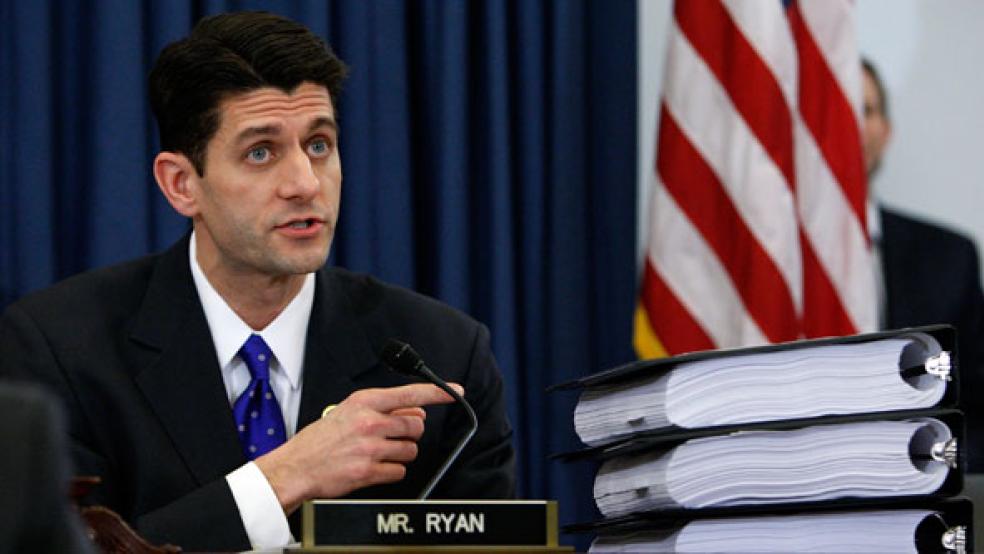The public wants immediate tough action to lower the trillion dollar budget deficit, and the White House and the new Republican House leaders are feeling the heat from scores of conservative newcomers in Congress demanding spending cuts far deeper than anything their party promised during the mid-term campaign. But creating a strategy for stiff budget cuts amid a tumultuous economic recovery will not be easy. And divining precisely what measures would be palatable to a majority of Americans may be even more of a challenge.
Or so it seems from the latest flood of budget news from Capitol Hill and a New York Times poll showing an alarmed but highly conflicted public when it comes to controlling federal spending. The Times poll shows that a majority of Americans (56 percent) think it’s necessary to take immediate steps to reduce the deficit, rather than waiting for better economic times. This clamoring for tough anti-deficit action now runs contrary to the views of many liberals and even some deficit hawks who argue that it is too soon to begin cutting domestic programs, before the economy makes a comeback. Moreover, by an overwhelming majority (62-29 percent), Americans say they would be more inclined to accept sharp cuts in programs that benefit them than paying higher taxes.
Yet that preference for spending cuts over tax increases begins to dissolve when respondents were asked to choose between specific options related to Medicare and Social Security – the health care and retirement programs that are among the biggest drivers of the long term debt problem. Nearly two thirds of Americans said they would prefer higher payroll taxes for Medicare and Social Security over reduced benefits in either program. And when asked to choose among cuts to Medicare, Social Security or defense spending, a large majority chose cuts in the military.
The poll was released just as congressional conservatives and Tea Party champions on Thursday demanded far more draconian cuts in government spending than the new House GOP leadership is willing to make: at least $100 billion from non-defense programs in the current fiscal year and $2.5 trillion over the next decade. The demand for deeper budget cuts was made by the Republican Study Committee, a conservative bloc that represents more than two-thirds of House Republicans.
Rep. Jim Jordan, R-Ohio, a hard-charging conservative and chairman of the study group, told reporters that “one hundred billion dollars is the number the American people heard last fall, and frankly, when you look at it in the context that there’s a $14 trillion debt, it seems to me we should be able to find $100 billion.”
But as Bruce Bartlett pointed out today in his Fiscal Times column, GOP leaders put themselves into a box last fall by pledging $100 billion of savings this year in non-defense programs when there’s virtually no way they could responsibly achieve the necessary trims of 20 to 30 percent in scores of sensitive social, law enforcement and veterans programs.
House Budget Committee Chairman Paul Ryan, R-Wis. – a rising star who will deliver the Republicans’ response to President Obama’s State of the Union address Tuesday night – has said he plans to seek cuts of only about $60 billion from this year’s budget. He said it would be too hard to find more in savings with so much of the current fiscal year already gone.
But that won’t go down well with many of the freshmen members in the House and Senate, who appear to be plotting to make a stand against Democrats and the White House over spending. And with the Treasury likely to run out of borrowing authority by spring unless Congress agrees to raise the national debt ceiling, the U.S. could be headed for tumultuous times on a par with the budget wars between the Clinton administration and the Republican Congress back in 1995.
“Our immediate goal is to cut spending to pre-bailout, pre-stimulus levels. That’s what we pledged, and that’s what we’ll fight for,” Michael Steel, a spokesman for House Speaker John Boehner, R-Ohio, told The Washington Post. “But that will be the beginning, not the end, of our efforts to cut spending and create jobs – and we appreciate every member’s input.”
Related Links
Conservatives, Liberals Both Take a Critical Eye to GOP Spending Cut Proposal (CBS News)
Paul Ryan will give State of the Union rebuttal (Politico)
Polls Show Grave Concern About Federal Debt (The New American)





